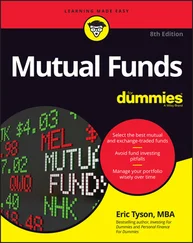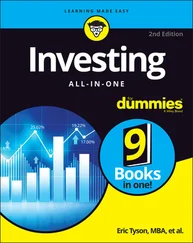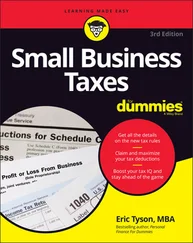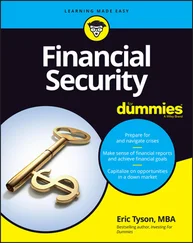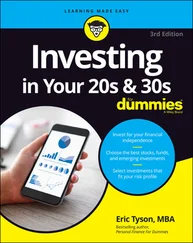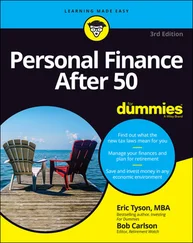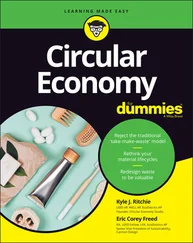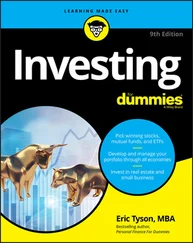1 ...8 9 10 12 13 14 ...22 Just because borrowing on credit cards bears a high cost doesn’t mean that all credit is bad for you. Borrowing money for long-term purposes can make sense if you borrow for sound, wealth-building investments. Borrowing money for a real estate purchase, for a small business, or for education can pay dividends down the road. Note: The amount that you borrow should be reasonable in comparison to your income and ability to repay.
When you borrow for investment purposes, you may earn tax benefits as well. With a home purchase, for example, home mortgage interest and property taxes are generally tax-deductible (as we discuss in Chapter 3).
If you own a business, you may deduct the interest expenses on loans that you take out for business purposes. Interest incurred through borrowing against your securities (stock and bond) investments (through so-called margin loans ) is deductible against your investment income for the year.
In fact, you can even make wise use of short-term credit on your credit cards to make your money work harder for you. For example, you can use your credit cards for the convenience that they offer, not for their credit feature. When you pay your bill in full and on time during each monthly billing cycle, you’ve had free use of the money that you owed from the credit-card charges that you made during the previous month. (See Chapter 5for details on how to use your positive credit experiences to obtain the best possible mortgage.)
If retirement isn’t one of your goals, terrific! Should you want (and be able) to continue working throughout your 60s, 70s, and 80s, you don’t need to accumulate the significant savings that others must in order to be loafing during those golden years. But counting on being able to keep working throughout your lifetime is risky — you don’t know what the job market or your personal health may be like later in life.
Retirement-savings accounts and a dilemma
Prior tax reforms have taken away some previously available tax write-offs, except for one of the best and most accessible write-offs: funding a retirement-savings plan. Money that you contribute to an employer-based retirement plan — such as a 401(k) or a 403(b) — or to a self-employed plan, such as a SEP-IRA, is generally tax-deductible. This saves you both federal and state income taxes in the year for which the contribution is made. Additionally, all your money in these accounts compounds over time without taxation. ( Note: The Roth IRA retirement accounts are unique in offering no up-front tax break but allowing the tax-free withdrawal of investment earnings subject to eligibility requirements.) These tax-reduction accounts are one of the best ways to save your money and make it grow.
The challenge for most people is keeping their spending down to a level that allows them to save enough to contribute to these terrific tax-reduction accounts. Suppose that you’re currently spending all your income (a very American thing to do) and that you want to be able to save 10 percent of your income. Thanks to the tax savings that you’ll net from funding your retirement account, if you’re able to cut your spending by just 7.5 percent and put those savings into a tax-deductible retirement account, you’ll actually be able to reach your 10 percent target.
 Generally speaking, when you contribute money to a retirement account, the money isn’t accessible to you unless you pay a penalty. So if you’re accumulating down-payment money for the purchase of a home, putting that money into a retirement account is generally a bad idea. Why? Because when you withdraw money from a retirement account, you not only owe current income taxes but also hefty penalties (10 percent of the amount withdrawn must go to the IRS, plus you must pay whatever penalty your state assesses).
Generally speaking, when you contribute money to a retirement account, the money isn’t accessible to you unless you pay a penalty. So if you’re accumulating down-payment money for the purchase of a home, putting that money into a retirement account is generally a bad idea. Why? Because when you withdraw money from a retirement account, you not only owe current income taxes but also hefty penalties (10 percent of the amount withdrawn must go to the IRS, plus you must pay whatever penalty your state assesses).
So the dilemma is that you can save outside of retirement accounts and have access to your down-payment money but pay much more in taxes, or you can fund your retirement accounts and gain tax benefits but lack access to the money for your home purchase.
 You can handle this dilemma in two ways. See whether your employer allows borrowing against retirement-savings-plan balances. And if you have an Individual Retirement Account (either a standard IRA or a Roth IRA), you’re allowed to withdraw up to $10,000 (lifetime maximum) toward a home purchase so long as you haven’t owned a home for the past two years. Tapping into a Roth IRA is a better deal because the withdrawal is free from income tax as long as the Roth account is at least five years old. Although a standard IRA has no such time restriction, withdrawals are taxed as income, so you’ll net only the after-tax amount of the withdrawal toward your down payment.
You can handle this dilemma in two ways. See whether your employer allows borrowing against retirement-savings-plan balances. And if you have an Individual Retirement Account (either a standard IRA or a Roth IRA), you’re allowed to withdraw up to $10,000 (lifetime maximum) toward a home purchase so long as you haven’t owned a home for the past two years. Tapping into a Roth IRA is a better deal because the withdrawal is free from income tax as long as the Roth account is at least five years old. Although a standard IRA has no such time restriction, withdrawals are taxed as income, so you’ll net only the after-tax amount of the withdrawal toward your down payment.
Because most of us have limited discretionary dollars, we must decide what our priorities are. Saving for retirement and reducing your taxes are important, but when you’re trying to save to purchase a home, some or most of your savings need to be outside a tax-sheltered retirement account. Putting your retirement savings on the back burner for a short time to build up your down-payment cushion is okay. Be careful, though, to purchase a home that offers enough slack in your budget to fund your retirement accounts after the purchase. Do the budget exercise in Table 2-1, earlier in this chapter!
Wanting to have the financial resources to retire someday is hardly the only reason to save. Most people have several competing reasons to squirrel away money. Here are some other typical financial objectives or goals that motivate people (or should be motivating them) to save money. We tell you how to fit each goal into your home-purchasing desires and your overall personal financial situation:
Emergency reserve: You simply can’t predict when and exactly what impact a job loss, death in the family, accident, or unexpectedly large expense may have on you and your family. That’s why it’s a good idea to have an easily accessible and safe reservoir of money that you can tap should the need arise. Make sure you have access to at least three months’ worth of expenses (perhaps even six months’ worth if you have a highly unstable job and volatile income). Ideally, you should keep this money in a money market fund because such funds offer you both high yields and liquidity. The major mutual fund companies (such as Vanguard, Fidelity, and T. Rowe Price) offer money funds with competitive yields, check-writing privileges, and access to other good investments. (See Chapter 3to find out more about these funds and how you can use them for investing your down-payment money.) Alternatively, a bank savings account can work, but it will likely offer a lower yield. Should you have benevolent relatives who are willing to zap you some dough in a flash, they may serve as your emergency reserve as well.
Educational expenses: If you have little cherubs at home, you want the best for them, and that typically includes a good college education. So when the first cash gifts start rolling in from Grandma and Grandpa, many a new parent establishes an investment account in the child’s name. Your best intentions can come back to haunt you, however, when Junior applies to enter college. All things being equal, the more you have available in your nonretirement accounts and in your child’s name, the less financial aid your child will qualify for. (By financial aid, we mean all types of assistance, including grants and loans that aren’t based on need.) Unless you’re wealthy or are sure that you can afford to pay for the full cost of a college education for your kids, think long and hard before putting money in your child’s name. Although it may sound selfish, you actually do yourself and your child a financial favor by taking full advantage of opportunities to fund your retirement accounts. Remember, too, that one of the advantages of being a homeowner is that you can borrow against your home’s equity to help pay for your child’s college expenses.
Читать дальше
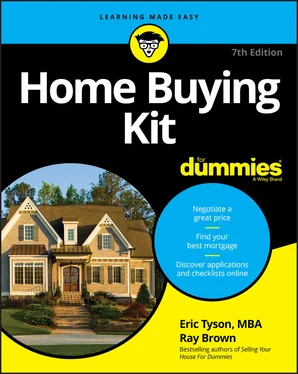
 Generally speaking, when you contribute money to a retirement account, the money isn’t accessible to you unless you pay a penalty. So if you’re accumulating down-payment money for the purchase of a home, putting that money into a retirement account is generally a bad idea. Why? Because when you withdraw money from a retirement account, you not only owe current income taxes but also hefty penalties (10 percent of the amount withdrawn must go to the IRS, plus you must pay whatever penalty your state assesses).
Generally speaking, when you contribute money to a retirement account, the money isn’t accessible to you unless you pay a penalty. So if you’re accumulating down-payment money for the purchase of a home, putting that money into a retirement account is generally a bad idea. Why? Because when you withdraw money from a retirement account, you not only owe current income taxes but also hefty penalties (10 percent of the amount withdrawn must go to the IRS, plus you must pay whatever penalty your state assesses). You can handle this dilemma in two ways. See whether your employer allows borrowing against retirement-savings-plan balances. And if you have an Individual Retirement Account (either a standard IRA or a Roth IRA), you’re allowed to withdraw up to $10,000 (lifetime maximum) toward a home purchase so long as you haven’t owned a home for the past two years. Tapping into a Roth IRA is a better deal because the withdrawal is free from income tax as long as the Roth account is at least five years old. Although a standard IRA has no such time restriction, withdrawals are taxed as income, so you’ll net only the after-tax amount of the withdrawal toward your down payment.
You can handle this dilemma in two ways. See whether your employer allows borrowing against retirement-savings-plan balances. And if you have an Individual Retirement Account (either a standard IRA or a Roth IRA), you’re allowed to withdraw up to $10,000 (lifetime maximum) toward a home purchase so long as you haven’t owned a home for the past two years. Tapping into a Roth IRA is a better deal because the withdrawal is free from income tax as long as the Roth account is at least five years old. Although a standard IRA has no such time restriction, withdrawals are taxed as income, so you’ll net only the after-tax amount of the withdrawal toward your down payment.